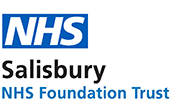

This page focuses on undertaking physical activity when diagnosed with Cancer. Physical activity is any type of exercise or movement that uses your muscles. This includes everyday activities like walking, housework, and gardening. Physical activity will help maintain or improve your fitness, health, and well-being.
What are the benefits of physical activity for people with cancer?
Before, during and after cancer treatment, being active can:
Is it safe to exercise when you have cancer?
It is usually safe to start doing some physical activity before, during, or after treatment. It can be hard to think about exercise when you are dealing with the symptoms of cancer or side effects of treatment, but becoming more active may help you cope with this.
If you decide to do some physical activity, it is important to do it safely. Even if you did regular physical activity before you were diagnosed with cancer, you may need more advice and support now.
Is there anything I need to consider before exercising?
Stop exercising if you get any sudden symptoms including:
Speak to a doctor straight away if you notice these or any other symptoms.
Below is a list of resources available to support you. If you need additional support with advice on physical activity and exercise, please contact the Cancer Therapy Team on 01722 336262. Extension 5153.
Our staff at Salisbury District Hospital have long been well regarded for the quality of care and treatment they provide for our patients and for their innovation, commitment and professionalism. This has been recognised in a wide range of achievements and it is reflected in our award of NHS Foundation Trust status. This is afforded to hospitals that provide the highest standards of care.
